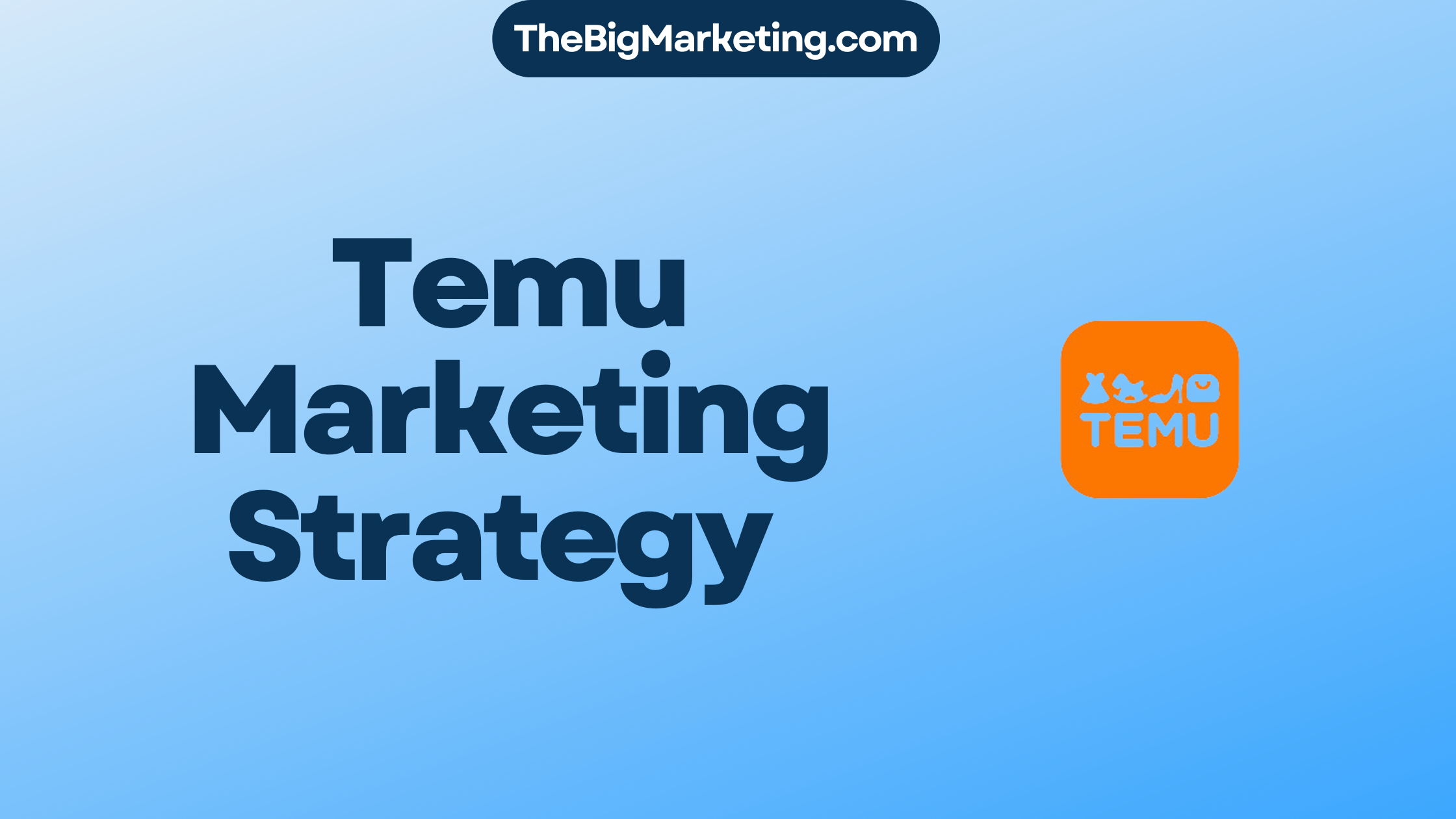Over the last decade, both affiliate marketing and influencer marketing have revolutionized the way DTC and ecommerce brands promote their products and drive sales. These digital marketing strategies have proven to be highly effective, surpassing traditional advertising methods like radio and television. While both approaches aim to increase conversions and revenue, they differ in their focus and execution.
Affiliate marketing, as the name suggests, relies on a network of affiliate partners to promote a brand’s products or services. These affiliates earn a commission for each successful transaction they drive through their unique affiliate links. On the other hand, influencer marketing revolves around collaborations with influential individuals, such as celebrities or social media personalities, to endorse a brand’s offerings and engage their dedicated followers.
While affiliate marketing primarily focuses on driving traffic to a brand’s website and generating immediate sales, influencer marketing goes beyond transactional conversions. It puts emphasis on building brand awareness, trust, and long-term relationships with customers. Influencer marketing campaigns often involve content creation, sponsored posts, and partnerships that aim to impact the audience’s perception and inspire action.
Key Takeaways:
- Affiliate marketing and influencer marketing are two powerful digital marketing strategies that can drive sales and brand awareness.
- Affiliate marketing relies on affiliates who earn a commission for each sale they generate through their unique links.
- Influencer marketing involves collaborations with influential individuals to promote products or services and build trust with their followers.
- Affiliate marketing focuses on immediate conversions, while influencer marketing aims to build long-term relationships and brand loyalty.
- Both strategies have their advantages and can be effective depending on the brand’s goals, target audience, and available resources.
What is Affiliate Marketing?
Affiliate marketing is a performance-based marketing tactic where a brand partners with affiliate partners to promote its products or services in exchange for a commission. It is a cost-effective strategy that has gained popularity in the digital marketing landscape.
Affiliate partners can be individuals, organizations, or publishers who have their own online platforms and audience. They play a crucial role in driving traffic and generating sales for the brand. Affiliate partners use unique links provided by the brand to seamlessly embed in their content, such as blog posts, social media posts, or videos.
When a customer clicks on the affiliate’s link and completes a transaction, the brand rewards the affiliate partner with a commission. This commission is often a percentage of the sale or a fixed amount agreed upon by the brand and the affiliate partner.
Affiliate marketing comes with several advantages for brands. It has a low barrier to entry with minimal startup and ongoing costs. Brands also benefit from a relatively low risk, as they only pay commissions when a sale is made. The return on investment (ROI) of affiliate marketing is typically high, making it an attractive marketing strategy for many businesses.
Affiliate Marketing Content Formats
Affiliate marketing primarily relies on blog posts as the dominant content format. Through well-crafted and informative blog posts, affiliate partners can effectively promote the brand’s products or services and drive traffic to the brand’s website.
However, affiliate marketing is not limited to just blog posts. It can also utilize other content formats such as social media posts and videos. Social media posts provide an opportunity for affiliate partners to engage with their audience and showcase the brand’s offerings. Videos, on the other hand, offer a dynamic and visual way to promote a product or service.
Overall, affiliate marketing allows brands to tap into the power of content creators and leverage their audience to generate sales and increase brand visibility.
How Does Affiliate Marketing Work?
Affiliate marketing is a dynamic process that involves collaboration between brands and affiliate partners to promote products or services. Here’s a breakdown of how affiliate marketing works:
- Affiliate Marketing Platforms: Brands leverage affiliate marketing platforms to connect with potential affiliate partners. These platforms act as intermediaries, facilitating the relationship between brands and affiliates.
- Affiliate Tracking: Brands create a profile on the platform and provide affiliates with unique links or codes. These links or codes serve as identifiers to track referrals and conversions generated by each affiliate.
- Affiliate Promotion: Affiliates promote the brand’s products or services using their unique links or codes. They incorporate these links into their content, such as blog posts or social media posts, to attract and redirect their audience to the brand’s website.
- Conversion Tracking: The affiliate marketing platform accurately tracks and records conversions generated by each affiliate. It captures essential data points like the number of clicks, sales, and commissions earned, providing key insights into the success of each affiliate’s efforts.
- Affiliate Commission: Based on the agreed commission structure, brands calculate the commissions owed to affiliates for successfully driving conversions. Payments are then made to affiliates, typically on a predetermined schedule or threshold.
- Affiliate Management: Affiliate marketing platforms offer various tools and features that streamline affiliate relationship management. These tools enable brands to communicate with affiliates, track performance metrics, generate reports, and optimize their affiliate marketing campaigns.
Affiliate marketing harnesses the power of collaboration, allowing brands to leverage the influence and reach of affiliates to drive traffic, increase conversions, and achieve business objectives.
Advantages of Affiliate Marketing
Affiliate marketing offers several advantages for brands in today’s digital landscape. By leveraging this marketing strategy, businesses can harness the power of affiliate partnerships to drive growth, increase sales, and enhance brand visibility. Let’s explore some of the key advantages that affiliate marketing brings to the table:
1. Low Startup Costs
Affiliate marketing is known for its low startup costs, making it an attractive option for businesses of all sizes. Unlike traditional marketing methods that often require significant upfront investments, affiliate marketing enables brands to establish partnerships with affiliates at minimal expense. This affordability factor allows brands to allocate their resources more efficiently and potentially achieve higher returns.
2. Low Risk
One of the major advantages of affiliate marketing is its low risk nature. Brands only pay affiliates when they successfully generate sales or conversions. This pay-for-performance model eliminates the need for upfront payments, ensuring that brands only invest in marketing efforts that deliver measurable results. This risk-reward structure contributes to a more cost-effective approach to marketing.
3. High ROI
The return on investment (ROI) achieved through affiliate marketing is well-documented. By partnering with affiliates who have relevant audiences, brands can tap into a pool of potential customers who are more likely to convert. The performance-based compensation model ensures that brands are rewarded for each successful sale or conversion, maximizing their ROI. Consequently, businesses can generate significant revenue for every dollar invested in affiliate marketing campaigns.
4. Efficient Targeting
Affiliate marketing allows brands to efficiently target their desired audience. By carefully selecting affiliates whose audience aligns with their target market, brands can leverage their affiliate partnerships to reach potential customers who are more likely to be interested in their products or services. This targeted approach enhances the effectiveness of marketing efforts and increases the likelihood of conversions.
5. Flexibility
Affiliate marketing offers a high degree of flexibility, allowing brands to adapt their campaigns and partnerships as needed. With the ability to easily track and measure the performance of each affiliate, brands can continually optimize their strategies for optimal results. Additionally, the flexibility of affiliate marketing allows brands to explore various promotional methods, such as blog posts, social media posts, or videos, depending on what resonates most with their target audience.
Overall, affiliate marketing presents numerous benefits that make it a valuable addition to any brand’s marketing strategy. With its low startup costs, low risk, high ROI, efficient targeting, and flexibility, affiliate marketing offers an effective and cost-efficient way to drive conversions, expand brand awareness, and reach new customers.
What is Influencer Marketing?
Influencer marketing is a digital marketing strategy where brands collaborate with influential individuals to promote their products or services. These influential individuals, such as celebrities or social media personalities, have a large following and a strong reputation on various social media platforms.
The collaboration between a brand and an influencer can take various forms, including sponsored content, product placements, giveaways, and brand ambassadorships. By leveraging the influence and reach of these individuals, brands can effectively engage with their target audience and increase brand awareness.
Influencer marketing strategies involve identifying the right influencers who align with the brand’s values and target market. Social media platforms like Instagram, YouTube, and TikTok are commonly used for influencer marketing campaigns due to their wide user base and high engagement rates.
Sponsored content created by influencers can be in the form of engaging social media posts, videos, or blog articles that showcase the brand’s products or services. These collaborations allow brands to leverage the influencer’s authenticity and credibility to connect with their audience in a more organic and relatable way.
Benefits of Influencer Marketing:
- Access to a larger audience base through the influencer’s social media following
- Enhanced brand awareness and visibility
- Established trust and credibility with the influencer’s audience
- Opportunity for targeted marketing by selecting influencers with an audience that aligns with the brand’s target market
- Creation of high-quality and engaging content
- Increased user-generated content and brand mentions
How Does Influencer Marketing Work?
Influencer marketing operates through direct partnerships between brands and influencers. Brands collaborate with influencers to create content that promotes their products or services. This content is typically published on the influencer’s social media channels, such as Instagram or YouTube.
Influencer marketing has a defined process that involves multiple steps:
- Influencer Partnerships: Brands identify and establish partnerships with influencers whose values, audience, and content align with their brand image.
- Influencer-Created Content: Influencers create high-quality content, such as posts, stories, or videos, that showcases the brand’s products or services organically. The content is engaging and tailored to resonate with their audience.
- Influencer Marketing Tools: Brands utilize influencer marketing tools and platforms to manage relationships, collaborations, and campaign performance. These tools facilitate seamless communication, content approvals, and streamlining of influencer collaborations.
- Influencer Tracking: Brands track key metrics such as reach, engagement, conversions, and sales generated by influencer marketing campaigns. This tracking ensures that brands can measure the success and effectiveness of their influencer partnerships.
Successful influencer marketing campaigns leverage the creativity, authenticity, and ability of influencers to connect with their audience. By partnering with influencers, brands can tap into the trust and influence they have built, resulting in increased brand awareness, engagement, and conversions.
Advantages of Influencer Marketing
Influencer marketing offers several advantages for brands. By partnering with influential individuals who have established themselves as experts in their respective niches, brands can leverage their authenticity and tap into the trust of their loyal followings. This trust and credibility generate higher engagement and conversion rates for brands, as consumers are more likely to believe and act on recommendations from influencers they trust.
One of the key advantages of influencer marketing is its ability to provide targeted reach. Brands can carefully select influencers whose audience aligns with their target market, ensuring that their message reaches the right people. This targeted approach increases the likelihood of reaching potential customers who are interested in the brand’s products or services, resulting in more relevant and effective marketing campaigns.
In addition to targeted reach, influencer marketing also generates brand awareness. When influencers promote a brand’s products or services to their large social media followings, it helps to increase the brand’s visibility and exposure. The endorsement and support of trusted influencers introduce the brand to new audiences and enhance its reputation.
Furthermore, influencer marketing facilitates high-quality content creation. Influencers are skilled content creators who know their audience well. When collaborating with influencers, brands can benefit from their creativity and expertise in producing engaging and compelling content. This content resonates with the influencer’s followers, creating a genuine connection and driving organic traffic to the brand’s website.
The Benefits of Influencer Marketing at a Glance:
| Advantages of Influencer Marketing |
|---|
| Authenticity and trust |
| Targeted reach |
| Brand awareness |
| High-quality content creation |
By leveraging influencers’ authenticity, trust, targeted reach, and expertise in content creation, brands can benefit from the unique advantages that influencer marketing offers.
Affiliate Marketing Vs Influencer Marketing: A Comparison
Affiliate marketing and influencer marketing are two popular strategies used by brands to promote their products or services. While they both involve collaborating with content creators, there are distinct differences between the two approaches.
Similarities
- Both affiliate marketing and influencer marketing rely on content creators to promote products or services.
- Both strategies aim to increase brand visibility and drive sales.
- Both affiliate marketing and influencer marketing require careful selection of partners or affiliates to ensure brand alignment.
Differences
Affiliate marketing is primarily focused on driving conversions and relies on a performance-based compensation model. Affiliates receive a commission for each sale or action they generate for the brand. This model provides a clear ROI measurement for brands, making it a popular choice among ecommerce businesses.
In contrast, influencer marketing aims to build brand awareness and leverage the credibility and authenticity of influencers. It focuses on creating content that resonates with the influencer’s audience, driving engagement and trust. Influencer marketing campaigns may include sponsored content, product placements, giveaways, or brand ambassadorships.
Hybrid Marketing and Brand Synergy
Some brands choose to combine affiliate marketing and influencer marketing strategies to achieve multiple objectives. This hybrid approach allows for a comprehensive marketing campaign that targets both conversions and brand visibility. By leveraging the reach and credibility of influencers, brands can enhance their affiliate marketing efforts and create a stronger brand presence.
Successful hybrid marketing requires careful consideration of brand synergy. Brands must select influencers and affiliates that align with their values and target audience. This collaboration creates a cohesive brand image and maximizes the impact of marketing efforts.
Audience Targeting
Both affiliate marketing and influencer marketing offer opportunities for targeted audience reach. Brands can choose affiliates or influencers whose audience aligns with their target market. This ensures that marketing messages are delivered to the right audience, increasing the chances of conversions and brand engagement.
However, the methods of audience targeting differ between the two strategies. Affiliate marketing relies on affiliates’ ability to drive targeted traffic to the brand’s website through their content. Influencer marketing, on the other hand, leverages the existing audience of influencers, allowing brands to directly access a specific group of potential customers.
Ultimately, the choice between affiliate marketing and influencer marketing depends on a brand’s goals, target audience, and resources. While affiliate marketing offers low risk and high ROI, influencer marketing focuses on building brand awareness and trust. By carefully considering their objectives and audience, brands can determine the most effective marketing strategy or combination of strategies to achieve their desired results.
| Affiliate Marketing | Influencer Marketing |
|---|---|
| Focuses on driving conversions | Focuses on building brand awareness |
| Relies on performance-based compensation | Relies on leveraging influencers’ credibility |
| Targets specific audience through affiliate partnerships | Targets influencer’s existing audience |
(Table: Comparison between Affiliate Marketing and Influencer Marketing)

Conclusion
After considering the benefits and advantages of both affiliate marketing and influencer marketing, it is clear that both strategies have their merits. Brands should carefully evaluate their specific goals, target audience, and available resources when deciding which approach to take.
Affiliate marketing offers a low-risk, performance-based model with efficient targeting capabilities. With its proven high ROI, it can be an excellent choice for brands looking to drive sales and generate conversions. On the other hand, influencer marketing provides authenticity, trust, and the ability to reach a targeted audience through influential individuals. It excels in building brand awareness and creating high-quality content.
Some brands choose a hybrid approach, combining both affiliate marketing and influencer marketing to achieve multiple objectives. By leveraging the strengths of both strategies, they can drive sales, increase brand awareness, and establish trust and credibility among their target audience.
In the end, the right strategy or combination of strategies depends on a brand’s unique circumstances and goals. By carefully analyzing their objectives and considering the advantages and limitations of each approach, brands can make an informed decision that aligns with their overall marketing strategy.
FAQ
What is the difference between affiliate marketing and influencer marketing?
Affiliate marketing is focused on driving conversions through performance-based compensation models, while influencer marketing is about building brand awareness by leveraging the credibility and authenticity of influencers.
How does affiliate marketing work?
Affiliate marketing is a performance-based marketing tactic where brands partner with affiliates to promote their products or services in exchange for a commission. Affiliates use unique links to embed in their content and earn a commission for each customer they bring to the brand.
How does influencer marketing work?
Influencer marketing is a digital marketing strategy where brands collaborate with influential individuals to promote their products or services. Influencers create content that showcases the brand’s offerings and publish it on their social media channels, such as Instagram or YouTube.
What are the advantages of affiliate marketing?
Affiliate marketing has low startup and ongoing costs, carries low risk, and offers a high return on investment. It allows for efficient targeting, flexibility in campaigns, and provides a cost-effective marketing strategy.
What are the advantages of influencer marketing?
Influencer marketing allows brands to tap into an influencer’s established trust and authenticity, leading to higher engagement and conversion rates. It provides targeted reach, generates brand awareness, creates high-quality content, and can drive organic traffic and increased SEO.
How do affiliate marketing and influencer marketing differ?
While both approaches leverage content creators to promote products or services, affiliate marketing is primarily focused on driving conversions and relies on performance-based compensation models. Influencer marketing, on the other hand, focuses on building brand awareness by leveraging the credibility and authenticity of influencers.
Can affiliate marketing and influencer marketing be used together?
Yes, some brands choose to combine both strategies for a hybrid approach that achieves multiple objectives. By leveraging the strengths of both affiliate marketing and influencer marketing, brands can drive conversions and build brand awareness simultaneously.








